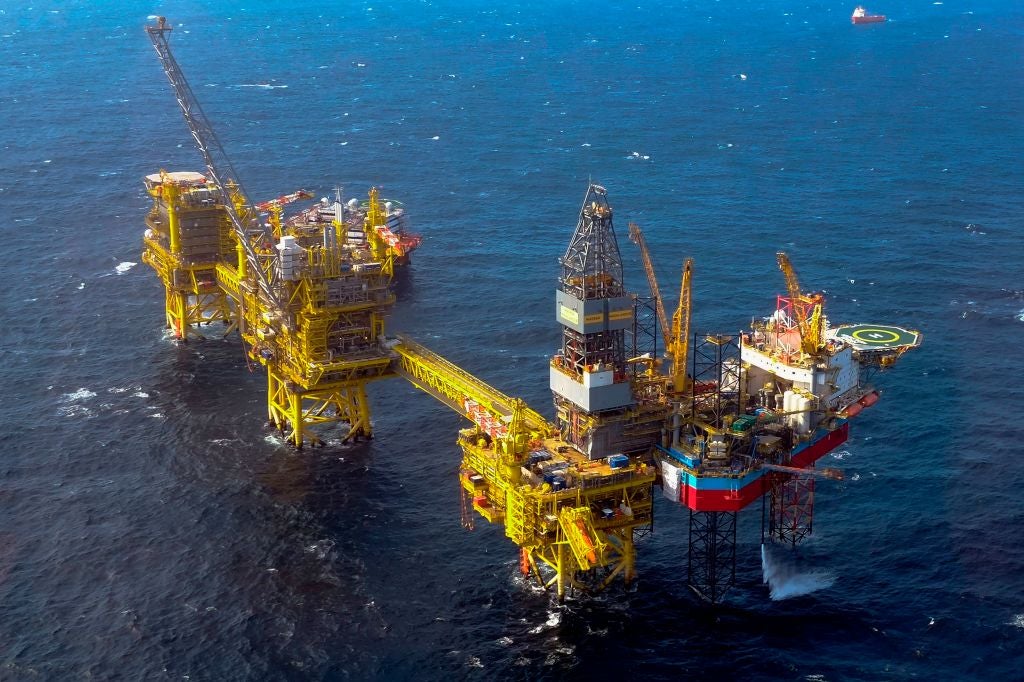The North Sea Transition Authority (NSTA), the UK oil and gas regulator, congratulated itself on receiving 115 bids for 256 blocks from its 15 January offshore oil and gas licensing round. Hailed as a success, Energy and Climate Minister Graham Stuart said the licences would “play an important role in boosting domestic energy production and securing the UK’s long-term energy security of supply”.
We disagree. Measures that support investment in the oil and gas sector in the UK are misguided. There are inadequate resources for the UK to materially increase production, and stimulus programmes will only put additional pressure on construction costs and installation timelines for offshore wind farms – the cornerstone of the UK’s net-zero by 2050 ambitions.
In the past two decades, UK oil and gas production has fallen, so it relies on imports to meet 66% of its gas needs and 82% of its oil needs, according to the Digest of UK Energy Statistics. Although there are still oil and gas reserves to be produced, the NSTA admits the country is unlikely to be self-sufficient in oil and gas supplies again.
In April 2022, then-UK Prime Minister Boris Johnson released the British Energy Security Strategy in response to the energy crisis affecting Europe. Reversing its previous stance, the government response included a series of stimulus packages to increase domestic oil and gas investment from a new licensing round, accelerating new field development processes and offering investment tax breaks.
At the same time, the strategy increased the UK’s offshore wind capacity ambitions from 40GW to 50GW by 2030, including 5GW of floating wind. With less than a decade to go, the UK is setting an exceptionally high target considering that it aims to increase offshore wind capacity by approximately 150% in half the time it took to install the current capacity. While increased turbine sizes and larger windfarms will help bring capacity online more quickly, the supply chain challenges associated with the aggressive build-out plans should not be underestimated.
[Keep up with Energy Monitor: Subscribe to our weekly newsletter]

US Tariffs are shifting - will you react or anticipate?
Don’t let policy changes catch you off guard. Stay proactive with real-time data and expert analysis.
By GlobalDataConsiderable investment, equipment and service provision will be required for the UK to meet its offshore wind target. The cost of installing 1MW is around £2.4m ($2.88m), so roughly £70bn of capital investment over the next eight years will be needed, fuelling demand for turbines, installation and commissioning vessels, port infrastructure, cables, foundations, substations and personnel.
The International Energy Agency suggests that around 40% of the oil and gas supply chain has synergies with offshore wind. Both rely on a limited pool of available ports, vessels and personnel. Stimulating both sectors at the same time will create competition between increasingly scarce resources, limiting availability and driving up costs.
Policy movements that support the oil and gas sector will have a limited impact on improving energy security. They will neither secure availability of energy resources nor protect consumers from volatile commodity pricing determined by international benchmarks.
Furthermore, such policies are more likely to stimulate demand for scarce supply-chain resources, increase inflationary pressures and reduce available capacity for offshore wind projects. This potentially creates a damaging situation regarding the UK’s future energy provision, and risks compounding exposure to price volatility and sustained emissions by slowing the progress of offshore wind – a resource that is abundant, clean and cheap by comparison.
Related items:
IEEFA: The UK Offshore Supply-Chain Dilemma
IEEFA: Continued reliance on gas will weaken the UK economy
IEEFA: UK’s offshore wind targets at risk from renewed push for North Sea oil and gas extraction




